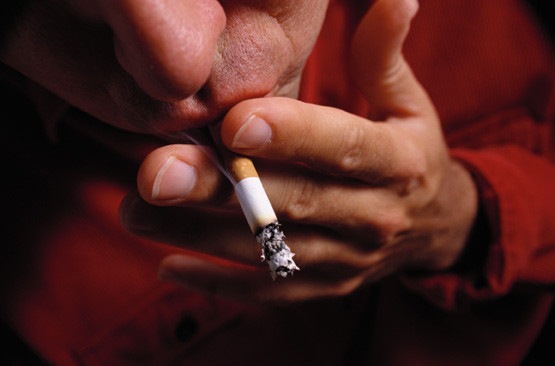Light and social smoking carry cardiovascular risks

Image: iStock
Light smoking isn't as bad as heavy smoking, but it still harms the heart and body. If you quit smoking completely, your health will benefit.
I'm not really a smoker. I only smoke a few cigarettes a day, or when I go out on the weekend." This thought process is common among light smokers. However, if you think you are doing your heart and lungs a favor by smoking only "a little," think again.
Light or intermittent smoking may be safer for you than heavy smoking, but they still cause plenty of harm. Quitting smoking completely is the best action for your help.Public health campaigns have reduced the number of American adults who smoke. Along with that decline has come an increase in the number of light and now-and-then smokers.
Experts long believed that smokers used light or intermittent smoking as a bridge to quitting smoking completely. But it's becoming clear that more and more smokers continue this pattern indefinitely — almost one-quarter of all smokers today fall into these categories.
Light smokers and intermittent smokers (sometimes called social smokers) often fly under the radar of doctors and others in a position to help them quit smoking completely. When asked "Are you a smoker?" or "Do you smoke?" they often answer "No."
Key points
|
Hazards of light smoking
Here's the long list of health hazards associated with light and intermittent smoking:
-
heart disease due to high blood pressure and cholesterol-clogged arteries
-
weakened aorta (an aortic aneurysm)
-
premature death from cardiovascular disease
-
lung, esophageal, stomach, and pancreatic cancer
-
respiratory tract infections
-
delayed conception in women and poorer sperm function in men
-
slower recovery from torn cartilage and other injuries
-
cataract
-
increased frailty in older men and women
-
poorer health-related quality of life.
The risks range from a 50% increase for slower recovery from torn cartilage to a 500% increase for lung cancer in women. Light or intermittent smoking may also contribute to chronic obstructive pulmonary disease (chronic bronchitis or emphysema), stroke, peripheral artery disease, breast cancer, and other conditions.
One aspect of light and intermittent smoking that puzzles experts is the role of nicotine dependence. Nicotine is the most addictive substance in cigarette smoke.
The physical symptoms of nicotine withdrawal (which include drowsiness, irritability, difficulty concentrating, anxiety, and craving for tobacco) are what prompt smokers to reach for a cigarette again and again. Some light smokers feel the need to smoke every day. Others can go days or even weeks without smoking, but then experience a deep, sudden urge to do it.
Quitting smoking for good
Almost half of people who have only a few cigarettes a day, or who smoke only now and then, don't consider themselves to be smokers, don't believe that it poses much of a risk to their health, and feel they can quit smoking any time they want. They are wrong on all counts. Smoking one to four cigarettes a day, for example, increases the risk of heart disease almost as much as smoking a pack a day. Telling yourself, and your doctor, that you aren't a smoker doesn't negate these hazards, and it does keep you from getting help to quit smoking completely.
When it comes to quitting smoking, everyone is different. Some light and intermittent smokers have an easier time quitting than heavy smokers, while others find it just as difficult.
There aren't any formal guidelines to help light and intermittent smokers quit. Nicotine replacement may be appropriate for light, everyday smokers. "I encourage my patients who are light or social smokers to keep nicotine gum handy for when they feel the urge to smoke," says Dr. Schane, a certified tobacco treatment specialist. Whether other quit-smoking medications, such as varenicline (Chantix) or bupropion (Zyban), are appropriate for very light or social smokers depends on the individual.
Light and social smokers who believe that their smoking isn't harmful to their own health may be moved to quit smoking by messages that their smoke harms others. Passive smoking — inhaling smoke from others' cigarettes, cigars, or pipes — has a well-defined set of hazards that are similar to those from smoking.
While movies, ads, and tobacco companies try to make smoking look cool, "it's time to stress the socially unacceptable aspects of smoking," says Dr. Schane.
Disclaimer:
As a service to our readers, Harvard Health Publishing provides access to our library of archived content. Please note the date of last review or update on all articles.
No content on this site, regardless of date, should ever be used as a substitute for direct medical advice from your doctor or other qualified clinician.












